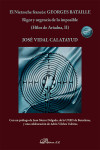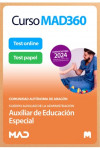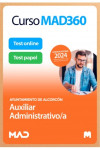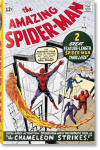THE TAROT OF A. E. WAITE AND P. COLMAN SMITH
Johannes Fiebig, Mary K. Greer
Datos técnicos
- ISBN 9783836597210
- Año Edición 2024
- Páginas 444
- Encuadernación Tapa Dura
- Idioma Inglés
Sinopsis
Arthur E. Waite, a modern mystic, created together with Pamela Colman Smith the most influential Tarot deck. With a selection of more than 800 images and texts, the pioneer of Tarot history, Johannes Fiebig contextualizes this unique deck. The kit includes facsimiles of the 1910 original edition of the cards and of A. E. Waite’s Key to the Tarot.
Doors into our uncharted depths
The Story of the World's Most Popular Tarot
A unique edition of bright texts, brilliant images, and historic reprints, this kit provides everything that both beginners and advanced Tarot users might need and want to read cards for themselves and to study and experience this cultural gem in all its beauty and significance.
The valuable collector’s box includes a complete deck of the Waite Smith Tarot cards and Waite’s famous companion book The Key to the Tarot. In this illustrated book, with texts and images compiled by Johannes Fiebig, the Tarot cards become psychological mirrors and signposts leading toward new answers and personal solutions. The fact that this works well can be attributed to certain advantages inherent to the Waite-Smith cards, and these points are illuminated in an essay by Rachel Pollack.
All 78 cards are presented individually and in detail. The explanatory texts provide several dimensions and levels of interpretation, including concrete practical tips. Further, the book offers a new feature: the quick check. This presents a concise hint regarding the meaning of each card in each possible position of all the spread patterns featured in the book.
When Arthur E. Waite and Pamela Colman Smith developed their Tarot deck in London in 1909, nobody could have predicted that it would have an overwhelming renaissance starting around 60 years later. What were the lives, works, and passions of these creators like? Pamela Colman Smith and Arthur E. Waite are brought vividly back to life in essays by Mary K. Greer and Robert A. Gilbert.
Otros libros que te pueden interesar
- ¿Quiénes somos?
- Gastos de envío
- Política de privacidad
- Políticas de devolución y anulación
- Condiciones Generales de contratación
- Contacto
2024 © Vuestros Libros Siglo XXI | Desarrollo Web Factor Ideas










